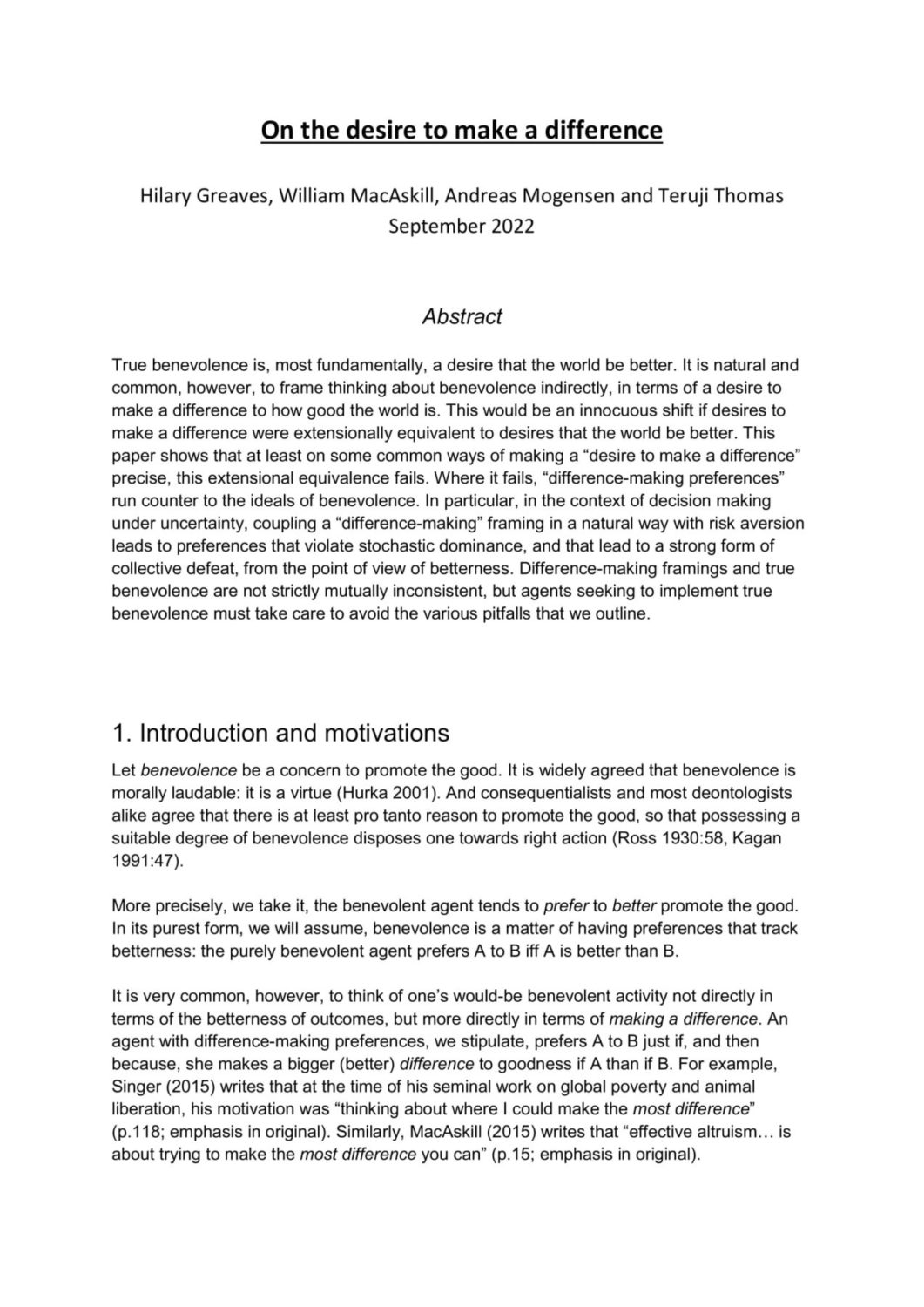On the desire to make a difference
Hilary Greaves, William MacAskill, Andreas Mogensen and Teruji Thomas (Global Priorities Institute, University of Oxford)
GPI Working Paper No. 16-2022, forthcoming in Philosophical Studies
True benevolence is, most fundamentally, a desire that the world be better. It is natural and common, however, to frame thinking about benevolence indirectly, in terms of a desire to make a difference to how good the world is. This would be an innocuous shift if desires to make a difference were extensionally equivalent to desires that the world be better. This paper shows that at least on some common ways of making a “desire to make a difference” precise, this extensional equivalence fails. Where it fails, “difference-making preferences” run counter to the ideals of benevolence. In particular, in the context of decision making under uncertainty, coupling a “difference-making” framing in a natural way with risk aversion leads to preferences that violate stochastic dominance, and that lead to a strong form of collective defeat, from the point of view of betterness. Difference-making framings and true benevolence are not strictly mutually inconsistent, but agents seeking to implement true benevolence must take care to avoid the various pitfalls that we outline.
Other working papers
A paradox for tiny probabilities and enormous values – Nick Beckstead (Open Philanthropy Project) and Teruji Thomas (Global Priorities Institute, Oxford University)
We show that every theory of the value of uncertain prospects must have one of three unpalatable properties. Reckless theories recommend risking arbitrarily great gains at arbitrarily long odds for the sake of enormous potential; timid theories recommend passing up arbitrarily great gains to prevent a tiny increase in risk; nontransitive theories deny the principle that, if A is better than B and B is better than C, then A must be better than C.
How to neglect the long term – Hayden Wilkinson (Global Priorities Institute, University of Oxford)
Consider longtermism: the view that, at least in some of the most important decisions facing agents today, which options are morally best is determined by which are best for the long-term future. Various critics have argued that longtermism is false—indeed, that it is obviously false, and that we can reject it on normative grounds without close consideration of certain descriptive facts. In effect, it is argued, longtermism would be false even if real-world agents had promising means…
Meaning, medicine and merit – Andreas Mogensen (Global Priorities Institute, Oxford University)
Given the inevitability of scarcity, should public institutions ration healthcare resources so as to prioritize those who contribute more to society? Intuitively, we may feel that this would be somehow inegalitarian. I argue that the egalitarian objection to prioritizing treatment on the basis of patients’ usefulness to others is best thought…

